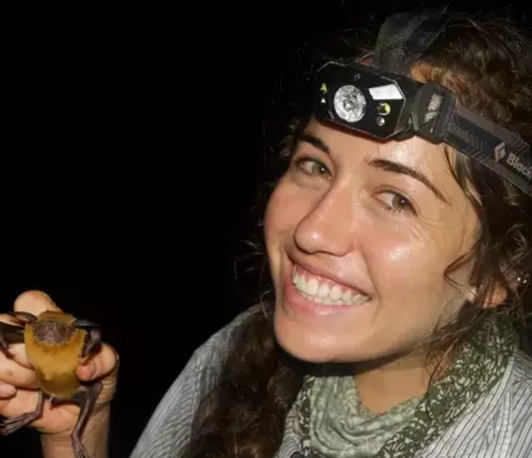Doctoral defense by Jenna Kohles
Supervised by Dina Dechmann
- Datum: 07.08.2024
- Uhrzeit: 14:00 - 16:30
- Vortragende(r): Jenna Kohles
- Ort: University of Konstanz
- Raum: ZT1204 + Online

Both foraging and socializing have a profound influence on animal survival and reproductive success, and for many species, are interdependent. Social foraging thus encompasses a wide range of behaviors that help animals overcome diverse challenges. When animals exploit food sources that are challenging to predict in time or space, the use of social information can improve foraging success. Yet the spatiotemporal dynamics of food availability and predictability vary in complex ways, and determine when, where, and how animals can use social information adaptively, despite costs such as increased competition. To address the extensive variation both in the behavioral patterns of animals using social information, and in the distributions of food they experience, we developed a conceptual framework for characterizing foraging strategies involving social information use. Two elements determine when each strategy is most advantageous: how long food persists in a given location and the relative benefit of using social information based on an animal's physiological and ecological state. We validated the framework with empirical studies of social foraging in bats, leveraging their diverse foraging niches and behaviors. We further explored these topics with two case studies in foraging bats that exploit food with different distributions, addressing key knowledge gaps identified by our framework. In the first we quantified seasonal shifts in spatiotemporal insect distribution and foraging effort for a neotropical bat species known to forage socially. We show that insect ephemerality and foraging effort are tightly linked, revealing underappreciated seasonal patterns of the tropics. Our results highlight the importance of quantifying food distribution at fine-scales. Second, we investigated foraging behavior of fruit bats that exploit heterogenous landscapes of mixed resource predictability and ephemerality using multi-sensor biologgers. We collected GPS and proximity data from a large portion of a colony simultaneously, finding that bats used patches with other tagged bats non-randomly, exhibiting persistent social associations across roosting and foraging contexts. Our findings suggest that social connections, possibly facilitated by the sharing of foraging information, play a role in how these bats manage competition and coordination within their colonies. Furthermore, large-scale tracking can illuminate the social dynamics that underpin colonial-living. This dissertation advances our understanding of ecological drivers of social foraging strategies, providing insights into the evolution and maintenance of social behavior in bats and taxa facing similar ecological challenges.